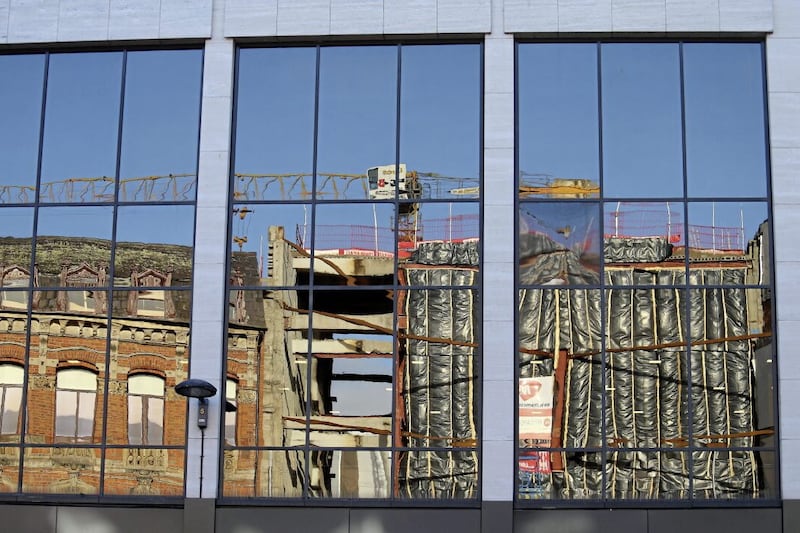ACTIVITY in the north’s construction sector is now at its weakest since the first lockdown in 2020 and hasn’t enjoyed the same rebound as other parts of the UK, a new industry barometer shows.
And industry insiders are predicting that workloads will decline further in the next year, driven by higher material and labour costs.
The figures in the latest Rics and Tughans construction and infrastructure monitor largely mirror recent Nisra findings which showed that construction outputs across the region fell by 3.9 per cent over the past year.
Surveyors responding to the latest Rics survey said workloads fell in Q3 at the sharpest rate in more than two years (nine quarters) and will come under further pressure in the next 12 months.
And 38 per cent of Northern Ireland expect workloads to decline over the next year compared to 8 per cent for the UK as a whole.
All sub-sectors suffered here other than infrastructure where modest growth was recorded.
Private commercial (down 32 per cent) and private industrials (down 50 per cent) were worst hit while activity in the private housebuilding and public housebuilding sectors fell for the first time in three and eight quarters respectively.
Nearly half of respondents (46 per cent) also expect profits to be squeezed - up from 31 per cent in quarter two.
Some 61 per cent of respondents experienced a shortage in quantity surveyors, 48 per cent reported a shortage of other construction professionals and 58 per cent mentioned a shortage in blue collar workers.
“It's clear Northern Ireland surveyors are much less optimistic than in the rest of the UK, which is perhaps unsurprising,” according to Jim Sammon, Rics NI construction spokesman.
“Activity locally hasn’t had the same rebound since the pandemic than other parts of the UK and the sector here faces a wide range of challenges including seemingly never-ending cost increases.
“We haven’t had a functioning government, which makes it more challenging for the sector because public sector work is a huge part of construction here, and without an Executive, there is a lack of certainty about budgets and the pipeline of work.”
He added: “A functioning Executive is vital to ensure that necessary investment in the economy and our infrastructure can be delivered efficiently and in a timely way.”
Michael McCord, senior partner at Tughans, added: “In these challenging times, it's clear the role of government is more important than ever regarding capital spending, infrastructure and ensuring effective and efficient decision which supports the private sector and the recovery.
“The construction industry has an extremely important role in helping drive a sustainable economic recovery in Northern Ireland. Investing in our infrastructure can play a central role in creating employment, driving spending in the economy, and ultimately improving our longer-term competitiveness.”








